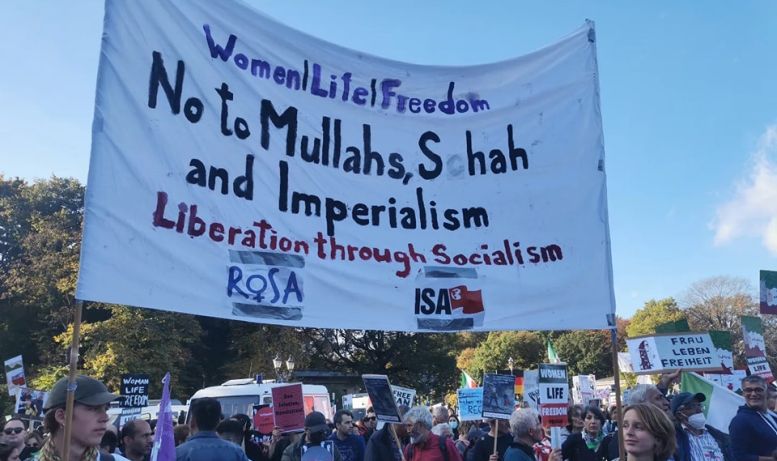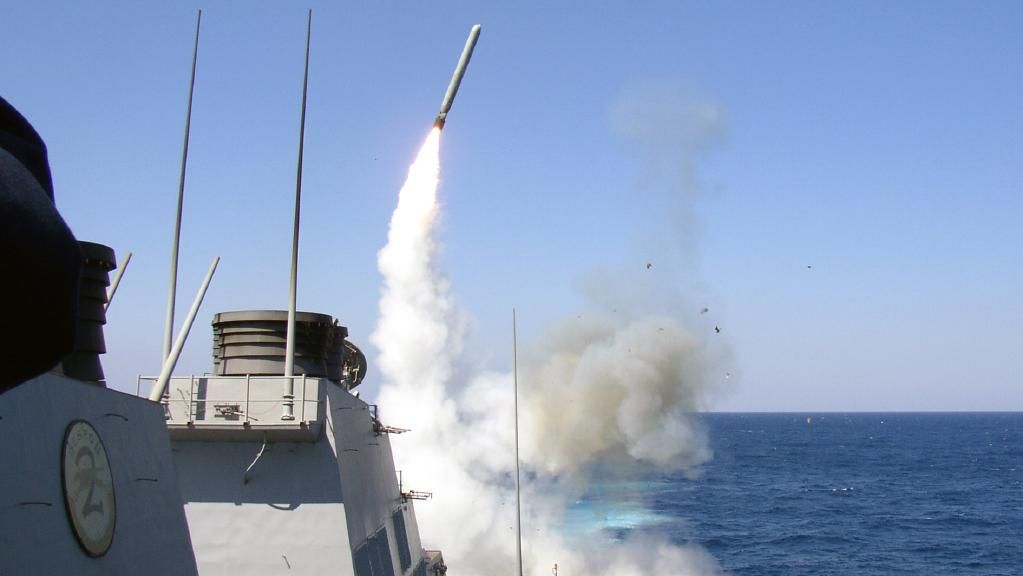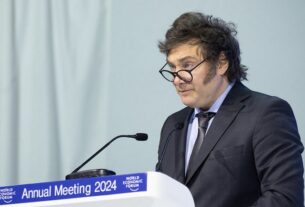This article is by ISA’s Iran working group.
Pro-capitalist opposition are “united” — but offer no solution for women, workers, and the poor.
On Friday, February 10, on the eve of the 44th anniversary of the establishment of the Islamic Republic, prominent Iranian opposition figures came together to present themselves as a sort of united liberal opposition. What looks like a step forward could actually weaken the movement on the ground and undermine its goals.
The group of people that came together represent the rich and wealthy, the elite of what they present as the future secular Iran. At this event at Georgetown University’s Institute for Women, Peace and Security (GIWPS) eight people came together, some in real life, some only online. Those included the current head of the former Shah’s family “Prince” Reza Pahlavi, a family that ruled with terror and collaborated in the selloff of the country’s wealth to imperialism, a family that has not renounced the throne. Other participants were Shirin Ebad (a Nobel Peace Prize winner from 2003), Hamed Esmaeilion (an activist around Flight PS752, a civilian plane shot down in 2020 by the “Revolutionary Guards”, killing nearly 200 people), Masih Alinejad (author and women’s rights activist), Nazanin Boniadi and Golshifteh Frahani (actors and activists), Ali Karimi (former captain of the national soccer team) and Abdullah Mohatadi, the Secretary General of Komala Iranian Kurdish Party.
This initiative, involving the capitulation of the liberal opposition to Reza Pahlavi, is a punch in the face for oil workers who released statements opposing the “Prince”, of the youth who were shouting “death to the dictator, whether Shah or Religious Leaders” and who clearly spoke out against imperialist intervention — like in a recently published statement by a number of trade union, student and pensioner groups.
Why now?
After 4 months of protests and brutal repression the movement is still not over although not at the same size as at its highest point. The regime has lost its influence especially amongst urban youth and there are worries that at the next elections in 2024 the overall turnout could be down to 15% — and even less in the cities.
At the beginning of 2023 women without the, formally still, mandatory Hijab were a common sight on the streets of Tehran, Isfahan or Mahabad. But the regime is still in power, as are its most brutal parts, the “Revolutionary guards” and the morality police. The regime is aware that every new wave of repression could create a new wave of protests so the new budget that disproportionately increasing support for “security” including the hated “Revolutionary guards” is a warning as well as a provocation to the movement. On the other hand, the movement is somehow hanging in the air, not really presenting an alternative to the regime yet. It is this vacuum that these self-proclaimed eight “leaders” are using in an attempt to hijack the movement. They are also trying to send a message to Western imperialism saying: don’t worry, we will be your reliable partners in a future Iran.
It is not only an attempt to appeal to imperialism. but it looks likely that US imperialism is directly involved in this move (as they were with Guaidó in Venezuela). Also, there is the beginning of a rift between US and EU imperialism. While the EU still seems to favour negotiations with the regime the US seems to be switching strategy to focus on destabilizing the regime and trying to force regime change.
Until now western imperialism has kept relatively quiet regarding Iran. The ruling elites in Washington, London and Brussels look greedily at the rich Iranian oil and gas fields which they would like to use to reduce their dependence on Russian oil. That is what was behind the recent attempt to re-start the nuclear deal negotiations. For “the West” it is not about “values” but about stability and oil although at this time the former is even more important. A relatively recent example is the sellout to Western companies of Iraqi oil after the “liberation” of Iraq. So their “sanctions” are rather soft as they are aware that the regime might stay in power for some time but they increasingly seem to wish to ensure their influence in case of the overthrow of the regime. It also has to be seen in the wider context of the inter-imperialist tensions when at least two of the self-proclaimed eight will be participating in the NATO summit in Munich. The group of eight tries to reassure those imperialist leaders that after the Mullahs are brought down, they will ensure that an incoming regime will provide the required stability in the region as well as access to the urgently needed natural resources for the western imperialist powers.
The truth is that this group of eight establishment figures, including Reza Pahlavi, represent neither the people of Iran nor the movement. Pahlavi and the supporters of the Shah family are trying to gain influence due to their enormous wealth (which they keep secret so estimates range from several hundred millions up to several billions) which they are also using to gain influence via seemingly “independent” media platforms. The same Pahlavi supported Trump’s sanctions that did not hit the regime in Iran but do hit ordinary people!
Even if this “alliance” of the eight might incorporate individual representatives of the movement in the streets they would not be willing to yield power to organised trade unions or to the many student organisations that have been formed. This move is an attempt by the former elites to come back to power and make sure that the capitalist foundation of Iran stays untouched.
In Iran itself various rank-and-file structures have developed, especially amongst the youth but also linking up with (already existing or newly formed) workers structures. A new statement of an alliance of trade unions, student and pensioners organisations and others makes very clear that they are against any power “from above” and want the revolution to liberate from all forms of oppression, discrimination, exploitation, tyranny and dictatorship. This statement represents the women, workers and youth, the movement on the ground one hundred times more than the self-proclaimed eight!
Despite the suppression by the regime there is a rich history of working class struggles and also workers’ councils like the most famous one by the Haft-Tappeh sugar workers, but also others of bus drivers, teachers, and in the oil and gas industry. The weakness of the movement is that those basic structures of a future real democracy are not brought together on a wide scale in democratic bodies of resistance to discuss a program for the struggle, a common strategy and to fill the vacuum left where the state forces have to retreat.
In a program drafted by activists in Europe and Iran as early as 22 October, ISA made a number of proposals of how to go forward with the movement that we think are still valid: https://internationalsocialist.net/en/2022/10/iranian-revolution. They are the basis for discussions with activists but also for building a coherent revolutionary organisation for the next phase of the revolution in Iran.
Self-proclaimed eight: “unity” that will backfire on the movement
There is no agreement amongst the self-proclaimed eight about what a future Iran should look like, some look to a western-style bourgeois democracy, others to a constitutional monarchy, some defend the rights of minorities like Kurds or Baluchi people, others play them down arguing there are only “Iranians.” Their line of argumentation is: unite against the Mullahs, we will deal with everything else later. What sounds like a reasonable plan is actually a threat to the movement. The whole concept reduces the struggle to a gigantic chess game where the king needs to be saved at the expense of the lives of the hundreds of thousands of “peasants” (read: workers and youth). Not only that, but the people of Iran, as well as in the diaspora, in their big majority, do not want the Pahlavi family to come back to power.
Moreover, these self-proclaimed eight cannot deliver what the youth and workers who rose up in Iran want: an end to the rule of the few, and end to the oppression and exploitation of women and workers, an end to poverty and for full rights to minorities. Under capitalism democratic rights are limited and even more in a country that would depend heavily on western imperialism. The US itself just declared women as too immature to decide about their own bodies (by overturning Roe v Wade) and previously equipped and trained the reactionary Islamist Mujahedin guerillas in Afghanistan (the predecessors of the Taliban), which fought the Soviet troops and the pro-Moscow government from 1979–1989. In this way it bears responsibility for turning Afghanistan into the stronghold of these religious fanatics and misogynists. The same West is supporting Turkey’s President Erdogan who attacks Kurdish regions even after the murderous earthquake.
In 1979, the Mullahs used the anti-imperialist sentiments and the desire for a republic of the poor to rally large sections of the movement, including the most important left organisations around the idea that “the most important is to get rid of the Shah” even as groups of workers were demanding a say in the running of the country, calling for a ‘Republic of the Poor’. But the approach of the left organisations left the question of what was to replace the Shah unanswered, which led to the brutal dictatorship of the Mullahs, a mistake that must not be repeated. So NO, the random eight are no lesser evil, no first step, no acceptable compromise but a threat to the movement and its demands.
So yes, the movement needs a next step forward, but the self-proclaimed eight are not what is needed but they want to make sure that ordinary people will again have no voice, even if the Mullahs are brought down. An alliance of pro-capitalist forces has no answer to the sky-rocketing price-rises and the lack of heating that leaves the people in Iran hungry and freezing. But the bringing together of the structures developing on the ground, the workers committees, the student groups, self-defence structures — that’s the direction to continue.
The oil workers were on strike again in January, which points to the potential power of the working class in Iran. While the country is in a serious economic crisis, as well as an energy crisis, these workers’ struggles can show a way forward. For the oil workers it is crystal clear why selling out to western companies would not solve the crisis in Iran and that they have the knowledge and potential power to take over the industry and use the wealth of the country for its people.
To link up such a struggle with the struggle for the rights of all women and queer people in Iran and for all minorities is the basis for a truly different Iran, a workers’ democracy where the many and not the few decide, where the rich resources are not exploited for a domestic or foreign elite, but would benefit the ordinary workers, peasants and poor and where the society is run by those who make it work. Such a continuation of the revolutionary process towards the overthrow not only of the Mullah regime but also its economic base would send shock waves through the rulers in Afghanistan and other dictatorships and encourage waves of support from workers and oppressed all over the world. This will be possible only by overthrowing the capitalist regime, replacing it with a democratic planned economy and socialist system. This would not be a repeat of the authoritarian Stalinist regimes of the past, but a genuine workers’ democracy in which it is ensured that the resources of society are used for the benefit of all, repression becomes a thing of the past, discrimination on the basis of gender, nationality or orientation disappears and nationalities have the right to self-determination, so that Iran can become an equal partner in a world federation of socialist states. .
The movement is weakened but it is not defeated and not over — it is an open question when it will come back in the next big wave, but it surely will. If you are part of the movement in Iran or abroad, and agree with our analyses and program then contact us to discuss and to build the forces that are able to overthrow all dictators and self-declared leaders as well as their economic basis, the capitalist system and fight for a socialist world.



